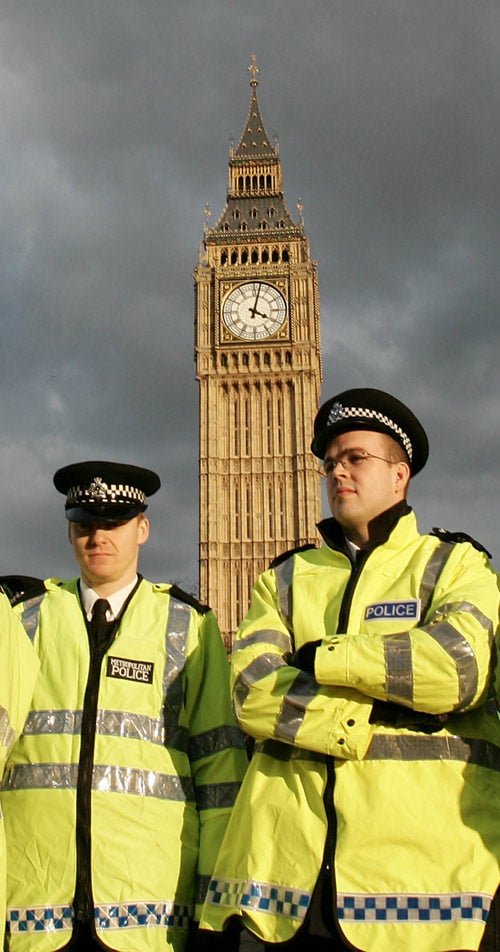Home Office report calls for fewer police officers

The size of the police force will have to be cut, with more civilians in posts previously filled by uniformed officers, a Home Office report into the future of the service has concluded.
It also set out plans to slash police paperwork, calculating that up to seven million hours of police time – equivalent to 3,500 officers – could be freed up as a result.
The proposals, which include recording details of minor crimes in a "much more concise way", were welcomed by Jacqui Smith, the Home Secretary, and are likely to form the basis of a wide-ranging overhaul of the service.
The police force reached a record strength of 141,700 in England and Wales last autumn, a rise of 14,000 over the past decade. But in the report, Sir Ronnie Flanagan, the Home Office adviser on policing, warned that the number of officers would inevitably fall slightly because of financial pressures.
"There is widespread recognition amongst the leadership of the service that maintaining police numbers at their current level is not sustainable over the course of the next three years," he said. "I am persuaded that we would not be making the most effective use of the resources dedicated to the police if police officer numbers were sustained at their current level."
Jobs such as staffing front desks in police stations and guarding suspects in custody could be undertaken by civilian staff, he said.
Sir Ronnie recommended that a two-tier system of recording crime be introduced in an effort to cut bureaucracy. The most serious crimes – about 20 per cent of incidents – would continue to be logged in the same way, but fewer details of more minor offences would be recorded.
Sir Ronnie suggested the new approach, which would see a 16-page form cut to one or two pages, could free up 40,000 police hours per year in a medium-sized force.
The streamlined recording process is being tested in Staffordshire, Leicestershire, the West Midlands and Surrey with a view to extending it nationwide.
Sir Ronnie also proposed scrapping the form officers have to complete every time they stop a passer-by, replacing it with a "receipt" recording the encounter and a verbal account on a digital recording system. Forms recording the more intrusive "stop and searches" would not change.
Ms Smith confirmed yesterday that the lengthy "stop and account" form will be scrapped immediately in three pilot areas and probably nationally by the end of the year. Ms Smith said she would publish a Green Paper in the spring setting out further reforms and had asked Sir Ronnie to report back in six months on progress in streamlining police processes.
Sir Ronnie, HM Chief Inspector of Constabulary, also warned that the authority traditionally exercised by parents, teachers and priests had waned over the past 20 years. "There is then pressure on the police to fill the resulting 'authority vacuum'," he added.
David Ruffley, the Conservative spokesman on police reform, said: "Labour now see slashing red tape solely as a means to cut police officer numbers. But the Conservatives will cut red tape in order to put more officers on our streets."
Chris Huhne, the Liberal Democrat home affairs spokesman, said: "Given the consensus on the need for modernisation, the real issue is why the Government has not taken more action before now."
Click here to read the full report
